八上英语重要内容及核心考点总结? 1. 由连接代词 who, whom, whose, what, which 等引导,不可以省略。比如: Do you know who he is? 2. 由连接副词 how, where, when, why 引导, 也不可省略。比如: I dont know where...
英语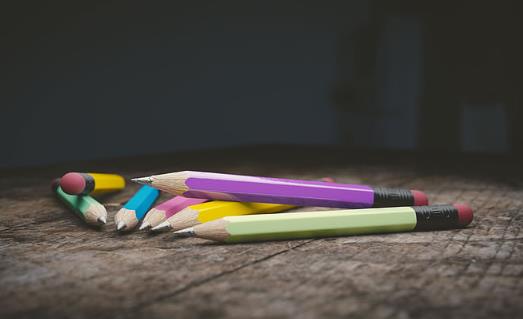

1.
由连接代词 who, whom, whose, what, which 等引导,不可以省略。比如: Do you know who he is?
2.
由连接副词 how, where, when, why 引导, 也不可省略。比如: I dont know where I can buy this kind of camera.
3.
宾语从句用陈述句语序,即:连接词 + 主语
=She spends a lot of money on clothes.
16、Now she plays baseball pretty well. 目前她棒球打得相当好。
[pretty well用来说明打棒球打得怎么样]
17、She is good at jumping.
be good at sth. / doing sth.
如 (1)She is good at English. 她擅长英语。
(2)He is good at playing basketball. 他擅长打篮球。
基本上等同于 He is good at basketball. 他擅长篮球。
18、There is going to be a school sports meet next weekend.
下周将有一个学校运动会。
[ 此句是there be句型用于be going to句型中。这里的there be句型是表示某时有某物,初一年我们常见there be句型表示某地有某物。]
19、They are sure that she will win. 他们确信她会赢。
20、It helps to keep her heart and lungs healthy.
它(游戏)有助于使她的心脏和肺保持健康。
[ help to do sth. 有助于做某事]
21、The team is going to play against China’s national team tomorrow.
明天这个球队(大卫.贝克汉姆的球队)将和中国国家队进行一场比赛
[ 把the team看成一个整体,故此,谓语动词用单数形式is ]
22、It’s too bad that the players aren’t going to stay for long.
队员们不会久留,真遗憾。
[此句中的it是形式主语,真正的主语是后面that引导的“the players aren’t going to stay for long”这件事。]
23、They are leaving for Japan the day after tomorrow.
他们将会在后天动身去日本。
[此句是用目前进行时表示以后。但并非任何动词都拥有这样的用法,英语中,表示位置移动的动词 go, come, leave, fly, start, arrive等,可以用目前进行时表示以后。这当中come, leave和arrive要记得去e再加ing变成目前分词,当然目前进行时别忘了动词be ]
24、— Could you please do me a favor? 请帮我个忙好吗?
[用could表示委婉地请求对方做某事。]
— Sure.
25、— Will you join us? 你愿意加入我们吗? [ will表示意愿 ]
— I’d be glad to.
26、I am not very good at it. 我不是很擅长它(足球)。
[ be good at sth. / doing sth. ]
例子:(1) I am good at English.
(2) I am good at playing basketball.
= I am good at basketball.
27、— Would/Do you mind teaching me? 你介意教我吗?
— Not at all. 一点也不介意。
[ (1)用would比用do委婉 (2) mind doing sth.介意做某事]
28、— Would/Do you mind if I open the window?
假设我打开窗户你会介意吗?
— Of course not./Certainly not. Please do.当然不介意。请打开吧。
You’d better not. 你最好不要(打开窗户)。
29、— Would/Do you mind not putting your bike here?
请你不要把自行车放在这里,好吗?
— Sorry. I’ll put it somewhere else.
30、— Would you mind not throwing bottles around?
— I am sorry about that. I won’t do it again.
31、— Don’t be late next time. 下次请不要迟到。
— Sorry, I won’t. 对不起,我下次不会迟到了。
32、— Would you mind making your bed?
— Sorry. I’ll do it right away.
33、What do you mean by saying that? 你既然如此那,说是什么意思?
34、I didn’t want to miss the goal, either.
(1) 肯定句要用also或too:
also要放在be/情态动词/助动词后面,行为动词以前
too常见放在句末,用逗号与前面隔开。
as well也放在句末,但大多数情况下不需要逗号与前面隔开。
例 I am also a student.
I am a student,too.
(2) 否定句要用either,放在句末,大多数情况下用逗号与前面隔开。
35、— I didn’t want to miss the goal, either. 我也不想失去这个球的。
— But you did. 但是,你确实失掉了这个球。
[基本上等同于But you missed the goal.]
36、I am sorry for what I said. 我为我所说,感到抱歉。
I am sorry for losing your book. 很抱歉把你的书丢了。
[ be sorry for sth. / doing sth. 为某事感到抱歉/后悔/遗憾 ]
37、It’s nothing. 没关系/不要紧。
同义句:(1)Never mind. (2)It doesn’t matter. (3)That’s OK.
[ 别人道歉时的答语。That’s OK.还可用来回答别人的道谢。]
38、We believe you’ll do better next time. 我们相信你下次会做得更好。
39、Keep trying! 不要停,加油!
40、We are sure to win next time. 我们下次一定赢。
[ be sure to do sth.确信/肯定要做某事(表以后)]
41、(1)I am sorry I didn’t call you last night. 很抱歉昨晚没给你打电话号码。
[ be sorry + 一个句子]
此句中抱歉指的是目前很抱歉故此,用大多数情况下目前时(am),昨晚没给你打电话号码是昨晚的事,故此,用大多数情况下过去时态(didn’t)
(2)I am sorry for what I said. 我为我所说,感到抱歉。
[ be sorry for sth. ]
(3)I am sorry for losing your book. 很抱歉把你的书丢了。
[ be sorry for doing sth. ]
for是介词,故此,后面的动词要变成动名词才可以作介词for的宾语。
42、— I am quite sorry I broke your pen. Let me buy you a new one.
— Never mind. I have another one.
【剖析解读】
⑴ one所指代的事物与前文提到的事物是同一类型的事物,但不是同一个。
⑵ another的用法:
(1) 再一个(在原来的基础上增多的,与原来的人或事物是同一类型的)
例 I am going to have another cup of coffee. 我打算再喝一杯咖啡。
(2)另一个(强调与原来的人或事物不是同一个,而是泛指另一个。)
例 We finally moved to another city. 最后我们搬到另一个城市。
【区别】 the other(另一个)是特指两个中的另一个(总数唯有两个)。another是泛指三个或三个以上的另一个(分两种情况,一种是清楚总数是三个,另一种是只清楚总数超越三个,但不了解确切数字)。
例 (1) I have two pens. One is black, the other is red.
(2) I don’t like this pen, please give me another (one)
43、That book wasn’t important to me. 那本书对我来说不重要。
44、I’ll be in Korea. 我将会在韩国 [在课文中可译成“我将去韩国”]。
45、I enjoy playing table tennis in different countries.
我喜欢在不一样的国家打乒乓球。
[ (1)enjoy doing sth.喜欢做某事 (2)country变复数countries ]
【联想】enjoy oneself 玩得高兴,过得愉快
例 We enjoyed ourselves at Kangkang’s birthday party.
46、【区别】(1)exciting用来表示某事物本身具有令人兴奋的性质特点
(2)excited用来表示某人因某事感到兴奋。
(1)You have a very exciting life now. 你目前过着令人兴奋的生活。
[ 你目前所过的生活具有令人兴奋的性质特点 ]
(2)Everyone in our class felt very excited because we were the winners.
我们班每个人感到兴奋,因为我们是获胜者。
[ 我们班每人因我们是获胜者感到兴奋 ]
47、【区别】(1)tiring用来表示事物本身具有令人感到累的性质特点。
(2)tired用来表示某人因某事感到累。
(1)My life is tiring as well. 我的生活也很累人。
[ 我所过的生活具有令人感到累的性质特点。]
(2) I am very tired . 我很累。[我因某事感到累。]
48、I started playing table tennis when I was about seven years old.
[ start doing sth.启动做某事 ]
49、He invented an indoor game for his students so that they could play even in bad weather.他为学生发明了一种室内游戏,以便他们就算在糟糕的天气也可以玩。[ so that + 一个句子, 表示目标。意为“以便……”]
50、You can throw the ball with one hand or both hands.
(1)with…,意为“用……” (2) both + 复数名词
51、Healthy eating habits and running help to build me up.
健康的饮食习惯和跑步有助于提高我的体质。
[ help to do sth. 有助于做某事 ]
52、I have great fun running. 我从跑步中取得很大乐趣。
[ have fun doing sth. 从做某事中取得乐趣 ]
53、Running has become my favorite sport. 跑步已经成为我最喜爱的运动。
[ 唯有一个动名词(短语)作主语,动词要用第三人称单数形式 ]
54、That’s very kind of you, but I can manage it myself.
你真是太好了,但我自己能处理。
55、I will take part in the school sports meet. 我将参与学校运动会。
[ will + 动词原形,表示以后某个时间要出现的动作或存在的状态 ]
56、I’ll be in the long jump and the high jump. 我将参与跳远和跳高。
[ be in + 活动,意为“参与某一个活动”,同义:take part in, join in ]
57、I hope so. 我期望如此。
58、That’s great! 太棒了!
59、I’m sure our school sports meet will be exciting. [ be sure + 一个句子 ]
我确信我们的学校运动会将让人很兴奋。
60、What will you do in the sports meet? 你将在运动会上做什么?
61、It’s my first time to take part in the high jump.
这是我首次参与跳高比赛。
[ It’s one’s first time to do sth. 是某人首次做某事 ]
62、I think I’ll have lots of fun. 我想我将从中取得不少乐趣。
[ (1)have fun玩得高兴,过得愉快,基本上等同于have a good time或enjoy oneself (2)have fun with sb.和某人玩得高兴 (3)区别:have fun doing sth.从做某事中取得乐趣 ]
63、I’m ready for the long jump. [ be ready for… (为……备好) ]
64、I’ll do my best. 我会尽最大努力。
[ (1) do one’s best 尽某人最大努力 (2) do one’s best to do sth.尽某人最大努力去做某事。如 I’ll do my best to learn English. ]
65、I want to be in the boy’s relay race. 我想参与男子接力赛。
[ want to do sth. 想要做要事 ]
66、Maybe I’ll make many friends during the sports meet.
Perhaps she will win.
[ (1)maybe/perhaps(“也许,可能”之意)常放在句首。修饰整个句子。Maybe与perhaps同义,但是在书面语中,大家常常更喜欢用perhaps, 因为它比较正式一点。(2)注意maybe与may be的区别:maybe是一个副词,“也许,可能”之意,常放在句首,修饰整个句子。而may be中的may是情态动词,may be意为“可能是……”或“可能在……”]
67、I’ll join in the teachers’ relay race.我将参与教师接力赛。
[ join in + 活动,与“take part in / be in +活动”同义 ]
68、— Hello, is that Michael? 你好,你是迈克尔吗?
— Speaking. 是的。[ 基本上等同于 This is Michael speaking. ]
(1) 通电话号码时,想清楚对方身份,不可以用you。例如,不可以说:Are you Michael?或 Who are you?,而应该说Is that Michael (speaking) ?或Who’s that (speaking) ?
(2) 通电话号码时,想告诉对方你的身份时,不可以用I。例如,不可以说:I am Li Ming.应该说This is Li Ming (speaking).
69、The school sports meet is coming tomorrow.校运会明天马上就要到来。
[ 此句用目前进行时表示以后。参看重要句型第23小点。]
70、Let’s go together. 让我们一起去吧。[ let sb. do sth. 让某人做某事 ]
71、(1) — What shall we take? 我们带些什么呢?
— We’ll take our sports clothes and sports shoes.
(2) — Shall I take my camera? 我带相机好吗?/要不要我带相机?
— Good idea.好主意。
(3) — When shall we meet?
— Let’s make it half past six.
(4) — Where shall we meet? 我们在什么地方见上一面啊?
— At my house. 在我家。
[shall作为情态动词,主要用于第一人称的疑问句中,表示征询意见。]
72、(1)Let’s make it half past six. 让我们定在六点半吧。
(2) — What time is it? / What’s the time?
— It’s half past six.
(3) — What time will it begin?
— At half past three. ( It will begin at half past three. )
[ 表示在几点做某事要加at,如(3);注意(1)(2)不要加at ]
73、(1) Xu Haifeng won the first gold medal for China in the 23rd Los Angeles Olympics in 1984.
(2)Class 4 is first.
(3) His class won first place.
[序数词前大多数情况下要用定冠词the,但也有的例外,如(2)(3) ]
74、— Congratulations!
— Thank you.
75、There will be another exciting relay race this afternoon.
今天下午将有另一场让人非常激动和紧张的接力赛。
[ there be句型用于大多数情况下以后时态:
(1)There will be…
(2)There is going to be… ]
76、Here are two pages from Kangkang’s diary. 这里有两页康康的日记。
77、I hope some day I’ll be able to take part in the Olympic Games.
我期望以后有一天我能参与奥运会。
[ (1) be able to do sth. 表示有能力做某事,can也可表示有能力做某事,但can只可以用于大多数情况下目前时和大多数情况下过去时两种时态,而be able to可用于各种时态。
He is able to dance. = He can dance.
He was able to dance. = He could dance.
He will be able to dance next year. (不可以说 He will can dance next year.)
(2) some day 以后某日,也可说someday ]
78、Kangkang hopes to be a soccer player when he grows up.
康康期望自己长大后当一名足球运动员。
[ 时间状语从句要用大多数情况下目前时态表示以后 ]
79、The People’s Republic of China took part in the Olympics for the first time in 1952. 中华人民共和国在1952年首次参与了奥运会。
[ do sth. for the first time 首次做某事 ]
【联想】It’s one’s first time to do sth. 是某人首次做某事。
It’s my first time to take part in the high jump.
这是我首次参与跳高比赛。
80、The Olympic rings stand for the five parts of the world.
[ stand for… (代表……) ]
81、— What’s wrong with you? / What’s the matter with you?
你怎么啦?
— I have a toothache.
我牙痛。
82、I’m sorry to hear that. 听到这个消息我超级难过。
83、(1)You should see a dentist. (2)You shouldn’t read too long.
你应该看牙医。 你不应该看书太久。
[ should / shouldn’t + 动词原形 (应该/不应该…… ) ]
84、I hope you’ll get well soon. 我期望你快点好起来。
85、I’m feeling terrible! 我感觉超级难受/不舒服。
86、— How long have you been like this? 你这样多久了?
— Two days. ( 完整回答:I have been like this for two days. )
87、(1)You’d better go to see a doctor. (2) You’d better not work too long.
你最好去看医生。 你最好不要工作太久。
[ had better / had better not + 动词原形 (最好做某事/最好不要做某事)]
88、— How are you feeling, Nick? 尼克,你目前感觉怎么样?
— Not so well. 没有亮眼表现。
89、I don’t feel like eating. 我不想吃东西。
[ feel like doing sth. 想要做某事, 感觉要做某事]
【联想】 want to do sth. 想要做某事
90、I cough day and night. 我每一个分每一秒咳嗽。
91、Why don’t you have a good rest? 你何不好好休息一下呢?
[“Why don’t you/we + 动词原形…?”用来提建议 ]
92、What’s the matter? / What’s wrong? 怎么了?
93、I have a sore throat. 我喉咙痛。I have sore eyes. 我眼睛痛。
94、You shouldn’t / had better not eat so much candy.
你不应该 / 最好不要吃这么多糖果。
95、You shouldn’t / had better not work on the Internet so long.
你不应该 / 最好不要网络这么久/既然如此那,久。
96、You should / had better take good care of your eyes.
你应该 / 最好保护好你的眼睛。
97、practice doing sth. 练习做某事
Today we’re going to practice parking.今天我们要练习停放车辆。
98、— How are you feeling today? 你今天感觉怎么样?
— Not too bad. 不太糟/还行。
99、Don’t worry. 别担心。
100、Your X-rays show it’s nothing serious. [划线部分作宾语是宾语从句]
你的X光片显示它没什么大碍。
101、— Don’t move your leg too much.
字面名字所表达出来的意思:不要移动你的腿太多。
习惯译成:不要让你的腿动得太多。
— All right. 好的。
102、Let me check over your left leg again. 让我再检查一下你的左腿。
103、— Do you feel better today? 你今天感觉好些了吗?
— Much better. 不少了。[ 完整回答:I feel much better. ]
104、Thank you for your flowers and fruit. 谢谢你们的花和水果。
Thank you for helping me. 谢谢你帮我。
[ thank you for sth. / doing sth.]
105、Follow the doctor’s advice, and you’ll get well soon.
遵从医生的建议,你很快就可以康复的。
106、Michael’s friends brought some flowers and fruit for him.
迈克尔的朋友们为他带来了一部分花和水果。
[ (1)bring sth. for sb. 为某人带来某物 (2) bring过去式为brought ]
【区别】bring sth. to sb. 带某物给某人
例 I brought some bread for Michael.
我为迈克尔带来一部分面包。
[面包有可能是给迈克尔的。也有一定概率是迈克尔要给别人的,只不过是我帮迈克尔带来罢了。]
I brought some bread to Michael. = I brought Michael some bread.
我带一部分面包给迈克尔。
[我带来的面包一定是要给迈克尔的。]
有关bring的其它用法,请考生们参照“目标短语”第258小点。
107、The doctor asked Michael not to move his leg too much.
医生叫迈克尔腿不要动得太多。
I must ask him to give up smoking. 我一定要叫他戒烟。
(1)ask sb. not to do sth. 叫某人不要做某事
(2)ask sb. to do sth. 叫某人做某事
108、I am sorry to tell you that I had an accident yesterday.
很抱歉告诉你,我上一天出了事故。
[划线部分是一个由that引导的宾语从句,作主句的宾语。That可省略]
109、The doctor told me to stay in bed for two weeks.医生叫我卧床休息两天。
[ (1)tell sb. to do sth. 告诉某人要做某事 (2)做某事做多久可以用“for+不短的一个时期”来表示,如本句中的for two weeks用来修饰stay in bed,说明卧床休息多久。又如 I played football for two hours.]
110、I couldn’t read the book until today.直到今天才可以看这本书。
[ not…until… 直到……才…… ]
111、Don’t worry about us. 不要担心我们。
112、we will get well soon. 我们很快就可以康复。
113、Are you OK now? 你们目前好了吗?/ 你们目前没事了吧?
114、If you still have a sore throat, you’d better see a doctor.
假设你喉咙还痛,你最好看医生。
115、I love ice cream and candy. [肯定句用and连接]
You shouldn’t eat ice cream or candy. [否定句用or连接]
你不应该吃冰淇淋或糖果。
区别You shouldn’t eat ice cream and candy. (该句初中大多数情况下不要求掌握并熟悉)
你不应该又吃冰淇淋又吃糖果。
116、— I have a headache. 我患头痛。
— What caused it? 是什么因素导致的?
117、I see. 我明白了。
118、Staying up late is bad for your health. 熬夜对你的身体是有害的。
[(1)一个动名词或动名词短语作主语,谓语动词要用单数形式。
本句中的主语staying up late是动名词短语,故此,谓语动词用单数形式is (2) health是名词,不要与形容词healthy相混淆。]
119、I feel sleepy because I went to bed very late last night.
我感到很困倦,因为我上一天晚上很晚才去睡觉。
120、You must not read in the sun. 你不可以在阳光下看书。(must not = mustn’t)
[ must not意为“不准,不允许,一定不要,一定不许”,表示不允许。]
【注意】must意为“一定要”,故此,有的考生误以为must not是没有必要的意思。
121、He thinks smoking can help him relax. 他觉得吸烟可以帮他放松。
宾语从句
122、That’s too bad. 那太糟糕了。
123、The article says smoking is bad for our lungs.
这篇文章说吸烟对我们的肺有害。
[(1)划线部分是宾语从句 (2)大多数情况下目前时态,行为动词要注意应该当用原形还是第三人称单数形式。本句主语是三单,故此,say要加s]
124、It may cause cancer. 它可能致癌。
[(1)情态动词+动词原形 (2)本句中的may表示概率。(3)may还可以用来表示允许或征求同意。如 You may use my pen. May I open the door? ]
125、How terrible! 多么可怕啊!
126、May I borrow your newspaper and show it to my father?
我可以借你的报纸给我父亲看吗?
(1)may在这里表示征求同意。(2)用and来连接,表示borrow和show这两个动作一前一后马上出现。(3)show sth. to sb.展示某物给某人看 = show sb. sth.向某人展示某物 例 show me the pen = show the pen to me,show it to me (不可以说show me it)
127、You must put litter into the dustbin. 你一定要将垃圾扔进垃圾箱。
You mustn’t throw litter around. 你不可以乱扔垃圾。
[情态动词must(一定要) / mustn’t(表示不允许) + 动词原形]
注意:mustn’t表示不允许,不要误以为是“没有必要”的意思。
128、Breakfast gives you energy for the morning.
早餐为你上午提供能量。
129、Going to school without breakfast is bad for your health.
不吃早餐上学对你的健康有害。 [动名词短语作主语]
130、Walking is good exercise and it’s necessary for your health.
散步是项好运动,它对你的健康来说是一定不可以缺少的。
[ be necessary for… 针对……来说是一定不可以缺少的]
131、Something is wrong with your health.你的身体健康产生异常。
[ Something is wrong with … = There is something wrong with…
意为“ ……出问题了”]
132、You might get a headache when you work too hard.
[ might是情态动词,后面加动词原形,语气比may委婉或概率比较小。]
133、Good health is more important than wealth.健康比财富更为重要。
(1)不可数名词作主语,谓语动词要用单数形式。
(2)more important than… 比……更加重要
134、Food gives us energy, so we must have enough food to keep healthy.
食物能给我们提供能量,因为这个原因,我们需足够的食物来保持健康。
(1) give sb. sth. = give sth. to sb.
例 give me a pen = give a pen to me
give it to me 注意:不可以说give me it
(2)本句中的too keep healthy是动词不定式短语,在这里句中表示目标。
135、Of course, we must also have the right kinds of food.
我们也一定要吃适合的食物。 [ 本句中的have是吃的意思]
136、Different foods help us in different ways.
[ food指不一样种类的食物时,要用复数形式foods ]
137、It’s necessary for us to have healthy eating habits.
针对我们来说,养成健康的饮食习惯是必要的。
[ “It is+形容词+ for sb. to do sth. ” 句中的it是形式主语,真正的主语是后面的动词不定式(短语) ,即to do sth.是真正的主语。]
138、I am coming. 我就来。
139、— May I ask you some questions, Dr. Li?
李医生,我可以问你一部分问题吗?
— Sure,go ahead. 当然可以,启动吧。
140、What should we do to prevent it?
我们应该做什么事来阻止它呢?
141、First,…. Second,…. Third,…. Finally,….
第一,…… 第二,…… 第三,…… 最后,……
142、— Must we do exercise to prevent the flu?
— Yes,We must. / No, we needn’t. / No, we don’t have to.
143、— Extension 6226, please. 请转分机6226。
— Just a moment, please. 请稍等。
144、— Could I speak to Dr. Li Yuping? 我可以和李玉平医生通电话号码吗?
— I’m afraid he is busy right now. 恐怕他目前很忙。
[ 这里的right now不是“马上,马上”之意,而是“就在这里刻”的意思,right是加强语气,修饰now]
145、I’d like to speak to Dr. Li Yuping. 我想和李玉平医生通电话号码。
[ would like to do sth. 想要做某事]
146、Please tell my father not to forget the talk tomorrow afternoon.
请告诉我父亲别忘了明天下午的报告。
(1)tell sb. to do sth.告诉某人做某事
(2)tell sb. not to do sth.告诉某人不要做某事
147、I’ll give him the message.我会告诉他的。
148、If yes, When can he get it? 假设行,他具体是什么时候可以取走它(自行车)?
基本上等同于:If it’s OK, when can he have it?
149、You need to have healthy eating habits. 你需养成健康的饮食习惯。
[need to do sth. 需做某事。]
区别:(1)need doing sth. 主语大多数情况下是物 (2)need to do sth.主语大多数情况下是人
150、Eat the right food to keep you healthy. 合理饮食来使你保持健康。
151、It’s necessary to learn about first aid.
了解相关急救方面的知识是有必要的。
[ it是形式主语,真正的主语是to learn about first aid ]
152、Happiness is important for your health. 快乐对你的健康非常的重要。
153、Be happy to be healthy. 想健康就得快乐。
[ to be healthy是目标状语,说明保持快乐的目标。]
154、Many students think it’s cool to smoke and drink.
宾语从句
不少学生觉得抽烟喝酒很酷。
155、You should say no to smoking and drinking. 你应该对烟酒说不。
[(1)say no to… 对……说不 (2)to是介词,故此,本句中smoke和drink要变成动名词smoking,drinking,才可以做介词to的宾语。]
156、Now I know how important happiness is.目前我清楚快乐有多重要。
[划线部分是宾语从句,它本来是一个疑问句(How important is happiness?快乐有多重要?),但考生们要注意,作宾语从句要用陈述句的语序(即“主语+谓语”的语序),当然疑问词要放在前面,故此,变成how important happiness is 。注意黑体字is位置的变化 ]
157、We learnt a lot from SARS. 我们从非典(这事件)中学到了不少。
We should learn from Leifeng.我们一定要向雷锋学习。
(1)learn sth. from sb./sth. 从某人身上/某事上学到……
(2) learn from sb.向某人学习
158、We can ask my father more about it. 我们可以向我爸了解更多的情况。
[ ask sb. about sth. 问某人有关某事]
159、There are lots of ways to keep fit.保持身体健康有不少方法。
[ 本句中的动词不定式短语 to keep fit作后置定语,修饰ways ]
160、It’s my duty to save patients. 挽救患者是我的职责。
[句中it是形式主语,动词不定式短语to save patients是真正的主语]
161、What’s the name of the serious disease? 那种重病的名字是什么?
162、We don’t have to be afraid of catching the flu.我们没有必要害怕患流感。
[ (1)have to+动词原形,意为“一定要做某事,不可以不做某事”
(2)don’t have to +动词原形,意为“没有必要做某事”]
163、Health is important to everyone.健康对每个一人来说都是重要的。
四、语法知识
大多数情况下以后时态:(1)表示以后某个时间要出现的动作或存在的状态。
经常会用到“be going to+动词原形”和“助动词will+动词原形”来表示。(3)但这两种句型用法上有点区别:be going to句型是事先经过考虑,而will的句型未必事先经过考虑,它只说明以后要出现某事或存在某状态。(4)故此,假设不是事先经过考虑的就不可以用be going to句型。(5)但有一种情况特殊:按照一定迹象判断将要出现某事也可用be going to句型,如Look at those clouds! It’s going to rain. (6)be going to 句型中含有动词be,句型转换和之前一样。
will+动词原形:不管主语是什么,都可以用will,当主语是第一人称时,可以用shall. 在以第一人称I/we作主语的疑问句中大多数情况下用shall, 用来表示征求对方意见或询问某情况。
注意:英语中,表示位置移动的动词 go, come, leave, fly, start, arrive等等,可以用目前进行时表示以后。
句式:(1)大多数情况下疑问句:Will…? (2)特殊疑问句:疑问词+will…? (3)否定式:在助动词will后面加not,可缩写为won’t。
五、考试详细指导
1、撞见名词要注意应该用单数还是复数,但要先看是可数还是不可数。
2、撞见动词要先看句中是否有特殊的单词的用法或句型,如be going to和情态动词要加动词原形,介词后面的动词要加ing变成动名词, help sb. do sth.,spend…(in)doing sth.等等。假设没有,就看看要用哪一种时态。
3、形容词和副词的用法:
形容词+名词,(连)系动词+形容词 [后面能加形容词的就是系动词]
修饰动词要用副词。
4、介词后面的动词要加ing变成动名词,才可以做宾语。
英语重要考试难点及核心内容归纳
1、去度假go待在家里stayhome3、去爬山gomountains4、去海滩gobeach5、参观博物馆visitmuseums6、去参与夏令营gosummercamp相当多quitefew8、为测验而学习studytests9、出去goout10、大多数时间 most of the time
Unit1 Where did you go on vacation?
【重点语法】
不定代词:不指名代替任何特定名词或形容词的代词叫做不定代词。
用法注意:
1. some 和any +可数名/不可数名。
some 多用于肯定句,any多用于否定句、疑问句和条件从句 。有部分问句中用some,不需要any, 问话者期望得到对方肯定回答。
2. 由some, any, no, every 与 body, one, thing构成的复合不定代词作主语时,其谓语动词用三单。
3. 不定代词若有定语修饰,该定语要置于其后:如:something interesting
【重点短语】
1. buy sth for ab./ buy sb. sth 为某人买某物
2. taste + adj. 尝起来……
3. nothing...but + V.(原形) 除了……之外什么都没有
4. seem + (to be) + adj 给人的印象
5. arrive in + 大地方 / arrive at + 小地方 到达某地
6. decide to do sth. 决定做某事
7. try doing sth. 尝试做某事 / try to do sth. 尽力做某事
8. enjoy doing sth. 喜欢做某事
9. want to do sth. 想去做某事
10. start doing sth. 启动做某事=begin doing sth.
11. stop doing sth. 停止做某事 区分:stop to do sth. 停下来去做某事
12. dislike doing sth. 不喜欢做某事
14. so + adj + that + 从句如此……以至于……
16. tell sb. (not) to do sth. 告诉某人(不要) 做某事
17. keep doing sth. 继续做某事
18. forget to do sth. 忘记去做某事 / forget doing sth 忘记做过某事
【词语辨析】
1. take a photo/ take photos 拍照
quite a few+名词复数 “不少…”
2. seem + 形容词 给人的印象…... You seem happy today.
seem + to do sth. 似乎/好像做某事 I seem to have a cold
It seems + 从句 似乎..…. It seems that no one believe you.
seem like ... 好像,似乎…..It seems like a good idea.
3. arrive in +大地址位置= get to= reach+地址位置名 “到达......”
arrive at +小地址位置
(注:若后跟地址位置副词here/there/home, 介词需省略,如:arrive here; get home)
4. feel like sth 感觉像…
feel doing sth. 想要做某事
5. wonder(想清楚)+疑问词(who, what, why)引导的从句。
6. because of +名/代/V-ing
because+从句
He can’t take a walk because of the rain.
I don’t buy the shirt because it was too expensive.
7. enough +名词 足够的…...
形容词/副词+enough
Unit2 How often do you exercise?
【重点语法】
1. 频率副词: always, usually, often, sometimes, never
频率副词在句中一般放在实义动词以前, be动词或助动词后面。经常会用到于大多数情况下目前时态中。
2.“次数”的表达方式
一次 once, 两次twice,三次或三次以上:基数词+ times, 如:three times, five times,
3. how often“多久一次”问频率,回答常含有频率词组或短语。
常见的how疑问词:
1)How soon 多久(以后)
—How soon will he be back?他多久能回来?
—He will be back in a month. 他30天后能回来。
2)how long “多久”
—How long did it take you to clean the house? 你打扫房子用了多久?
—It took me half an hour to clean the house. 我打扫这房子用了半小时。
3)How many+名复
How much+不可名
“多少” 问数量(how much 还可问价格)
【重点短语】
1. go to the movies 去看电影
2. look after = take care of 照顾
3. surf the internet 网络
4. healthy lifestyle 健康的生活方法
5. go skate boarding 去划板
6. keep healthy=stay healthy 保持健康
7. eating habits 饮食习惯
8. take more exercise 做更多的运动
9. the same as 与什么一样
10. be different from 不一样
11. once a month一月一次
12. twice a week一周两次
13.make a difference to 对......有影响/作用
14. most of the students=most students
15. shop=go shopping=do some shopping 购物
16. be good for 对......有益
17. be bad for 对......有害
18. come home from school放学回家
19. of course = certainly = sure 当然
20. get good grades 获取好成绩
21. keep/be in good health 保持健康
22. take a vacation 去度假
【词语辨析】
1. maybe / may be
maybe 是副词,意为“大约, 可能,可能”,大多数情况下用于句首。May be是情态动词,意为“可能是...,也许是...,大约是...”.
The baby is crying. Maybe she is hungry.
The woman may be a teacher.
2. a few / few / a little / little

People can live to 100, but few people can live to 150.
There is little time left. I won’t catch the first bus.
Could you give me a little milk?
3. hard / hardly
hard作形容词,意为“困难的,艰苦的,硬的”;作副词,意为“努力地,猛烈地”。hardly为副词,意为“基本上不”。
The ground is too hard to dig.
I can hardly understand them.
It’s raining hard. The people can hardly go outside.
4. As for homework , most students do homework every day .
as for...意思是“至于;有关”,+名词、代词或动词的-ing形式(即动名词)。
如:As for him,I never want to see him here.
至于他,我永远不期望在这里见到。
As for the story,youd better not believe it.
有关那故事,你最好不要相信。
5. That sounds interesting.
这是“主语+系动词+表语”结构的简单句。sound(听起来),look(给人的印象),smell(闻起来),taste(尝起来),feel(认为),seem(好象),grow(变得),get(变得)等词在英语中可用作系动词,后跟形容词作表语。如:
It tastes good. 这味道好。
The music sounds very sweet. 这音乐听起来很入耳。
The smoke grew heavier and heavier. 烟雾变得越来越浓了。
6. percent 名词,意为“百分之……”
百成绩的表示方式:基数+ percent (不需要复数形式),percent做主语时,谓语动词的数要按照其后面的名词来确定。
50%:fifty percent 百分之五十
Fifty percent of the apples are bad. 百分之50的苹果都坏了。
Twenty percent of the meat is in the fridge. 百分之20的肉都在冰箱
7. not… at all 意为“一点也不”,not应放在be动词、情态动词或助动词后面。
The story isn’t interesting at all. 那个故事一点也没有趣。
8. It is + adj. to do sth. 做某事是……的。
It is interesting to play computer games. 玩电脑很有趣。
9. take, spend, pay
It takes sb. some time to do sth. 意为“花费某人……时间来做某事”。
人(sb.) spend 时间/钱 on sth. “买某物花了……钱”。
人(sb.) spend 时间/钱 (in) doing“花费多少时间来做某事”。
pay 的主语一定要是人,而“花钱买某物”为pay...for...
10. however 副词,意为“然而可是”,表示转折关系,可放在句首、句中、句末。
Unit3 I’m more outgoing than my sister.
【重点语法】
1. 形容词和副词的比较等级
(1)形容词和副词的原形就是原级
(2)比较级,表示较……或更……
(3)最高级, 表示最...。
©下载资源版权归作者所有;本站所有资源均来源于网络,仅供学习使用,请支持正版!


以上就是本文八上英语知识点总结,八年级上英语重难点的全部内容,关注中宇考试网了解更多关于文八上英语知识点总结,八年级上英语重难点和英语的相关信息。
本文链接:https://edu.china-share.com/news/16436.html
发布于:中宇考试网(https://edu.china-share.com)>>> 英语栏目
投稿人:网友投稿
说明:因政策和内容的变化,上文内容可供参考,最终以官方公告内容为准!
声明:该文观点仅代表作者本人,中宇考试网系信息发布平台,仅提供信息存储空间服务。对内容有建议或侵权投诉请联系邮箱:sdf2223@foxmail.com
英语
八上英语重要内容及核心考点总结? 1. 由连接代词 who, whom, whose, what, which 等引导,不可以省略。比如: Do you know who he is? 2. 由连接副词 how, where, when, why 引导, 也不可省略。比如: I dont know where...
英语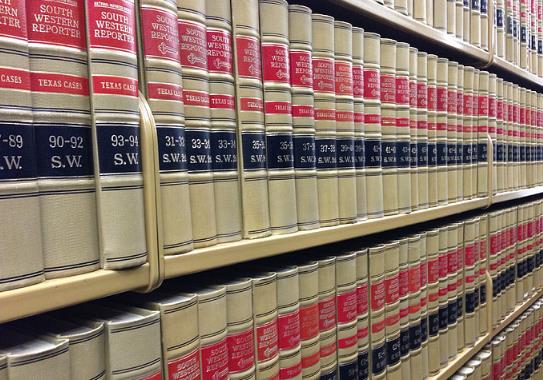
初中英语作文多少满分? 初中英语作文大多数情况下都是10分,但是,有一部分地方是15分,而大多数情况下都是10分的地方,有部分大型考试里也会是15分,在类似于周测月考之类的考试中,...
英语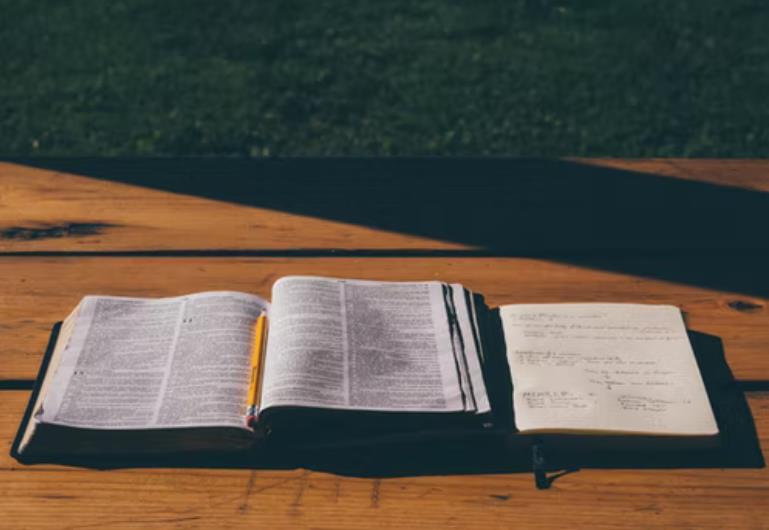
初写英语字母笔顺? 先熟读熟记,再通过一笔一划练习加深印象,任何一本书都拥有字母笔顺 初1可以放弃英语吗? 初一不可以放弃英语。这是过来人的警告! 我们那个年代,初一才启动学英...
英语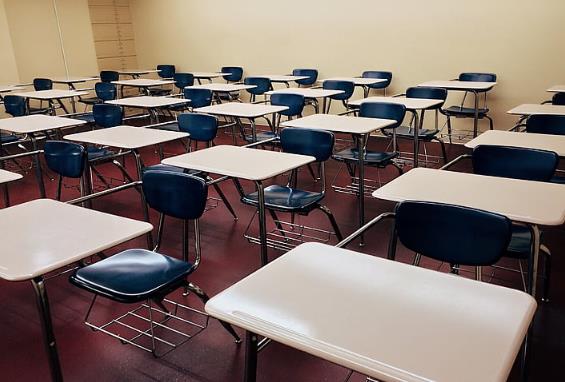
成考英语补全对话经常会用到句子? 打句号的地方,用陈述句。 打问号的地方,用疑问句。 提示:小李在巴黎旅游时迷了路,很着急,而他看不懂手里的法语版地图. 一个巴黎人告诉他应沿着 那条路...
英语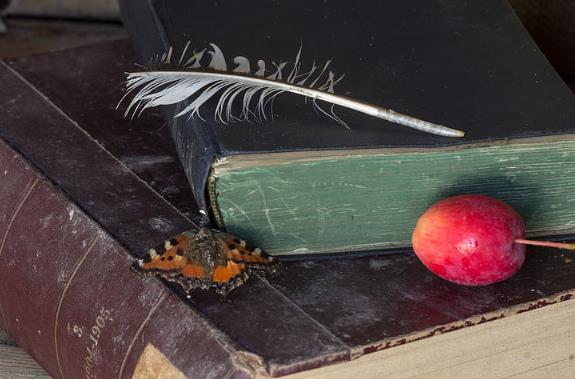
初中九年级英语课文大多数情况下背诵什么? 在我们衡阳市这里。我儿子学校初中九年级的英语课文是要求都背诵的。不但九年级的英语课文从初一到初三,全部的英语课文都要求背诵。全部...